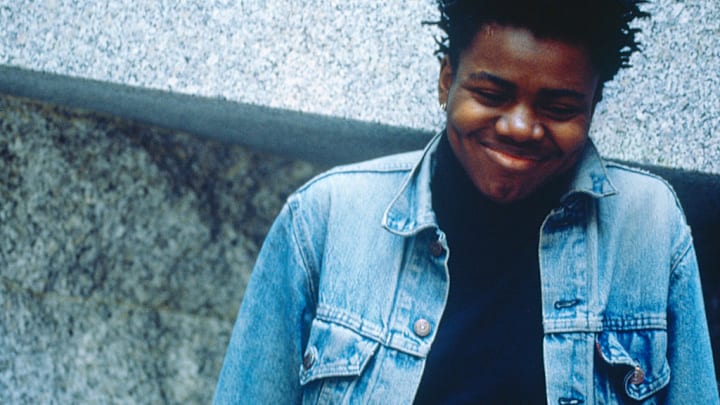One of the most talked-about moments at the 2024 Grammys was Tracy Chapman joining country star Luke Combs for a performance of Chapman’s 1988 classic “Fast Car.” Combs covered the song for his 2023 album Gettin’ Old and took his version to No. 2 on the Billboard Hot 100, four places higher than Chapman’s original.
Thanks to these two hit renditions, millions of people around the world are familiar with “Fast Car,” a harrowing song sung from the perspective of someone hoping to overcome various obstacles (crummy job, traumatic family history, absentee partner) and find a better life. But some fans might be surprised to learn just how “Fast Car” became such a massive hit the first time around.
Chapman, who was born in Cleveland and educated at Massachusetts’s Tufts University, released her self-titled debut album on April 5, 1988. Two months later, on June 11, she performed at the Nelson Mandela 70th Birthday Tribute, held at Wembley Stadium in London. Chapman took the stage in the afternoon and did three songs, including “Talkin’ ‘bout a Revolution,” which has since become a well-known protest anthem. Her set did not include “Fast Car,” and if not for a technical mishap—or an act of fate, depending on what you believe—the song might never have blown up as it did.
Later in the concert, which was being televised across the world, Stevie Wonder was unable to take the stage because a computer disk containing his keyboard sounds had gone missing. Wonder eventually performed using borrowed equipment, but due to the mixup, show organizers needed someone to quickly jump on stage and keep things moving. Since Chapman needed only a microphone and a guitar, she was the logical choice.
Chapman did two more songs, “Fast Car” and “Across the Lines.” The former, her debut single, had been out for a couple of months, but it wasn’t yet a major hit. On the strength of her stirring Wembley performance, the single exploded, reaching No. 6 on the Billboard Hot 100 and propelling the album to No. 1 on the Billboard 200.
Less than two years later, in April 1990, Chapman returned to Wembley for the charity concert Nelson Mandela: An International Tribute for a Free South Africa. Mandela himself was in attendance, having been released from prison two months earlier. “Fast Car” wasn’t among the four songs she played, but she did turn in another chill-inducing “Talkin’ ’bout a Revolution.”
